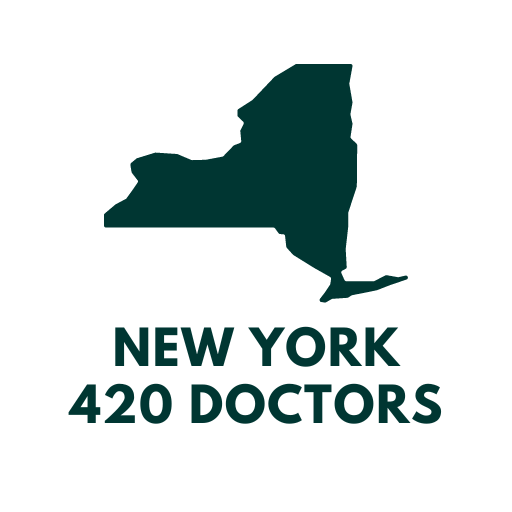Medical marijuana has become a popular treatment option for patients with qualifying conditions in New York, but many patients have questions about the cost of this treatment. One of the most common questions is whether medical insurance will cover the expenses associated with medical marijuana. In this article, we’ll explore whether insurance companies in New York cover medical marijuana and what patients can expect in terms of out-of-pocket costs.
Current Status of Medical Marijuana and Insurance Coverage
As of now, medical marijuana is not covered by health insurance in New York or in any other state. This applies to both private insurance companies and government-funded programs like Medicaid and Medicare. The primary reason for this is that medical marijuana is classified as a Schedule I controlled substance under federal law, meaning it is still illegal at the federal level. Because health insurance is regulated at the federal level, insurance companies are not required to cover medical marijuana expenses.
Here are some of the key reasons why medical marijuana is not covered by insurance:
- Federal Prohibition: Medical marijuana is still illegal under federal law, despite being legal for medical use in many states, including New York. This makes it difficult for insurance companies to justify covering a treatment that is not federally recognized.
- Lack of FDA Approval: Medical marijuana has not been approved by the U.S. Food and Drug Administration (FDA) as a prescription medication. Since insurance companies typically cover only FDA-approved treatments, they cannot cover medical marijuana.
- Classification as a Controlled Substance: Marijuana is classified as a Schedule I substance under the Controlled Substances Act, meaning it is considered to have a high potential for abuse and no accepted medical use at the federal level. This classification poses a significant barrier to insurance coverage.
Out-of-Pocket Costs for Medical Marijuana in New York
Because medical marijuana is not covered by insurance, patients must pay for all related expenses out of pocket. These expenses include:
1. Medical Marijuana Certification
Before you can obtain medical marijuana in New York, you must be certified by a registered healthcare provider. The cost of this certification varies depending on the provider. In some cases, telemedicine platforms may charge lower fees compared to in-person consultations. Certification costs typically range from $100 to $300, and this is a recurring cost, as certifications must be renewed annually.
2. Application Fee for the Medical Marijuana Card
After receiving certification from a registered provider, you must apply for a medical marijuana card through the New York State Department of Health (NYSDOH). There is currently a $50 application fee, although this fee may be waived in certain cases.
3. Medical Marijuana Products
The cost of medical marijuana varies depending on the form (e.g., tinctures, capsules, vaporizers, etc.), the dispensary, and the dosage. On average, patients can expect to spend between $50 and $300 per month on medical marijuana products, depending on their needs and usage.
Potential Financial Assistance for Medical Marijuana Patients
While insurance companies do not cover medical marijuana, there are some financial assistance options that may help reduce the cost burden for patients:
1. Dispensary Discounts
Many licensed medical marijuana dispensaries in New York offer discounts or financial assistance programs for certain groups of patients. Common discounts include:
Patients should contact dispensaries directly to inquire about available discounts or assistance programs.
2. Flexible Spending Accounts (FSAs) and Health Savings Accounts (HSAs)
Some patients may be able to use funds from a Flexible Spending Account (FSA) or Health Savings Account (HSA) to cover the costs of medical marijuana certifications and related expenses. While the IRS does not explicitly list medical marijuana as an eligible expense, some patients have reported success in using FSA or HSA funds for medical marijuana-related costs. Be sure to consult with your tax advisor or benefits administrator to determine whether this is an option for you.
3. Compassionate Care Programs
Some medical marijuana dispensaries and organizations offer compassionate care programs that provide discounted or free medical marijuana for patients with financial hardships. These programs are typically offered on a case-by-case basis and may require documentation of financial need.
Alternative Therapies Covered by Insurance
While medical marijuana itself is not covered by insurance, some alternative therapies and treatments that may complement medical cannabis use are covered. These include:
- Physical therapy
- Chiropractic care
- Acupuncture
- Prescription medications (for conditions that qualify for medical marijuana)
Patients may want to explore these options in conjunction with medical marijuana to manage their symptoms and reduce overall healthcare costs.
Will Insurance Cover Medical Marijuana in the Future?
There is hope that insurance coverage for medical marijuana may change in the future. Several factors could contribute to this shift, including:
- Federal Legalization: If the federal government legalizes marijuana or reclassifies it as a substance with recognized medical value, insurance companies may begin covering medical cannabis as part of their standard policies.
- FDA Approval: If the FDA approves marijuana-based medications for specific conditions, insurance companies may be more likely to cover those products.
- State-Level Initiatives: Some states may introduce programs or mandates requiring insurance companies to cover medical marijuana costs for certain conditions.
Until these changes occur, however, patients will need to continue paying for medical marijuana out of pocket.
Conclusion
Currently, medical marijuana is not covered by insurance in New York due to federal regulations and the lack of FDA approval. Patients must pay for certifications, application fees, and medical marijuana products out of pocket. However, there are some ways to reduce costs, such as dispensary discounts, FSAs/HSAs, and compassionate care programs.
As the legal landscape surrounding medical marijuana continues to evolve, there is potential for insurance coverage in the future. In the meantime, patients should explore all available options to manage the costs of medical cannabis treatment.
If you’re looking to get certified for medical marijuana or have questions about the process, visit NewYork420Doctors for more information or to schedule a consultation with a registered provider.

